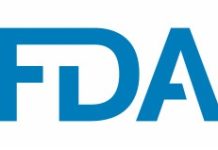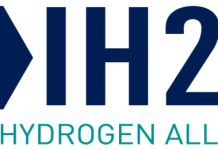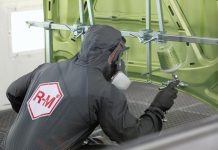Dr. MP Sukumaran Nair
 In the past two days, there were three industrial accidents in which 11 people died and several are injured and are under medical treatment. The incidents are, a leakage of styrene monomer from the LG Polymer’s styrene plant at Visakhapatnam, a boiler explosion at NLC power plant at Neyveli, and a poisonous gas release at Shakthi paper mill at Raigarh, Chhattisgarh. All these plants were shut down for over a month due to the COVID-19 pandemic and are being restarted to resume production following the ease of the lockdown. Chemical plant operators are well aware that once the plants are shut for months it is necessary to undertake a full-scale safety review before starting to ensure the safety of men and assets inside the unit. They are also required to ensure the safety of people outside the factory and see that no environmental damages arise during the start-up, normal operations, maintenance, and shutting down of the plants. There are well-defined protocols and standard operating procedures (SOPs) to govern the start-up, shutdown, and preservation of process plants handling inflammable, hazardous, and toxic chemicals. Based on available information one cannot rule out some extent of negligence or wilful bypassing of such guidelines which culminated in the above incidents. Most of the chemical processing facilities in the country are shut down due to the lockdown amidst the COVID-19 pandemic and are being restarted these days. It is necessary that the start-up of plants strictly adhere to the standard operating procedures and protocols without giving any chance for an untoward incident to occur.
In the past two days, there were three industrial accidents in which 11 people died and several are injured and are under medical treatment. The incidents are, a leakage of styrene monomer from the LG Polymer’s styrene plant at Visakhapatnam, a boiler explosion at NLC power plant at Neyveli, and a poisonous gas release at Shakthi paper mill at Raigarh, Chhattisgarh. All these plants were shut down for over a month due to the COVID-19 pandemic and are being restarted to resume production following the ease of the lockdown. Chemical plant operators are well aware that once the plants are shut for months it is necessary to undertake a full-scale safety review before starting to ensure the safety of men and assets inside the unit. They are also required to ensure the safety of people outside the factory and see that no environmental damages arise during the start-up, normal operations, maintenance, and shutting down of the plants. There are well-defined protocols and standard operating procedures (SOPs) to govern the start-up, shutdown, and preservation of process plants handling inflammable, hazardous, and toxic chemicals. Based on available information one cannot rule out some extent of negligence or wilful bypassing of such guidelines which culminated in the above incidents. Most of the chemical processing facilities in the country are shut down due to the lockdown amidst the COVID-19 pandemic and are being restarted these days. It is necessary that the start-up of plants strictly adhere to the standard operating procedures and protocols without giving any chance for an untoward incident to occur.
Most management is often challenged on the marketing front on account of the month-long disruption of production. At least in some cases essential maintenance requirements are deferred, regular safety audits delayed, operating parameters are stretched, and start-up procedures are hastened in the real operating situation. Process plant operators have limited access to the information they need to manage the process when it deviates into abnormal situations. Control Systems are typically designed, programmed, and tuned for normal or near-normal operations. They may not take care of abnormal situations. In such cases SOPs enable them to spot potential problems and take corrective action before they grow into trouble.
Most investigative reports on chemical plant accidents reveal one thing in common and that is the operator’s error as a root cause for accidents. The operating parameters for chemical plants are set as per the intent of the designer and the technology supplier, and the stipulated control mechanisms normally take care of most deviations, and prevent them from growing into an abnormal situation. Most often such situations arise during the startup and shutdown of plants. Standard operating procedures are developed and codified taking into consideration various industry standards, code of practices in vogue, and relying on the best available practices generated in the industry experience over years and also learning from previous failures. Thus most hazardous industries, globally, have developed inherently safe practices such as reducing the quantity of toxic material handled at a time, shifting to less hazardous raw materials and inputs, and providing adequate design level tolerances for safe operation. Even so, accidents are not fully eliminated in the best designed and best operated plants. Therefore, field-level safety operations of hazardous plants demand a strict adherence to standard operating procedures and a relevant code of practice. As we miss them, accidents are bound to happen and all the three incidents are reminiscent of the same.
A wise person learns from his mistakes. A wiser one learns from others’ mistakes. (John C. Maxwell in Leadership Gold)
































